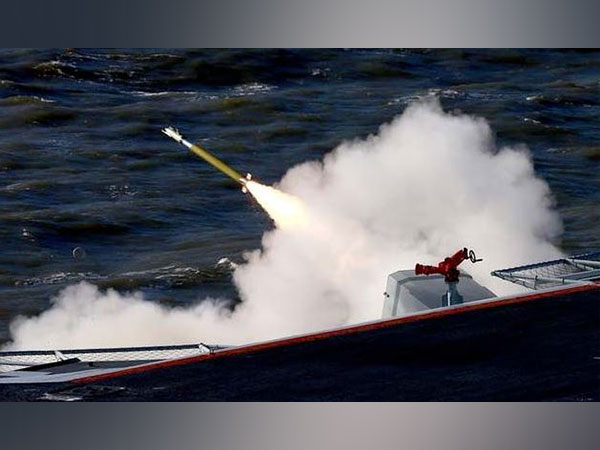China recently fired five ballistic missiles into Japan’s exclusive economic zone following US House Speaker Nancy Pelosi’s visit to Taiwan.
Katsuji Nakazawa, a Tokyo-based senior staff and editorial writer at Nikkei Asia, said that the Chinese actions in sending missiles toward Japan constitute blatant provocation.
China’s state-run Xinhua News Agency reported late at night on August 2 — just after Pelosi’s plane landed at Taipei’s Songshan Airport — that the PLA had designated six zones around Taiwan where it would hold military exercises beginning at noon on August 4. An area east of Taiwan, partially overlapping with Japan’s EEZ, was designated as one of the zones.
China’s firing of missiles began in the afternoon of Aug. 4. Five of the missiles launched by China landed within Japan’s EEZ southwest of Hateruma Island, part of Okinawa Prefecture, after 4 p.m. that day.
According to Japan’s Ministry of Defence, four of the five missiles were fired from along the coast of Fujian province and flew far above Taipei before landing within Japan’s EEZ. They flew somewhere between 500 and 550 kilometres, threatening Taiwan and Okinawa simultaneously, reported Nikkei Asia.
The remaining missile was fired from along the coast of Zhejiang province and travelled around 650 km. It landed within Japan’s EEZ without flying over Taiwan, according to the Japanese ministry.
The Zhejiang-fired missile can be interpreted as direct intimidation against the Nansei Islands, where troops from the Japan Self-Defence Forces are stationed and radar facilities are installed.
No missile landed in the new, 7th exercise area. All of the five missiles landed within the initial area announced on Aug. 2.
Even under the Aug. 2 plan, there was an option to avoid Japan’s EEZ. But China, or more specifically Xi, did not choose this option.
Technically speaking, military exercises within another country’s EEZ are not banned. But there is no doubt China’s actions this time constitute a blatant provocation, said Katsuji.
It could become a turning point in Sino-Japanese relations, 50 years after the neighbours normalized diplomatic ties in 1972. China made no bones about trying to undermine Japan’s EEZ in the Pacific.
Maritime issues between Japan and China have so far been mainly over the East China Sea; now there is a possibility that the tussle will be expanded into the Pacific.
After hearing of the missiles and realizing belatedly that their response might have been lukewarm, Chinese Foreign Minister Wang Yi and his deputies quickly toughened their stance on Japan.
A planned meeting between Japanese and Chinese foreign ministers in Cambodia was abruptly cancelled. China cancelled the meeting on the grounds that a statement by the foreign ministers from the Group of Seven contained “groundless accusations against China.”
Furthermore, the Chinese Foreign Ministry summoned Hideo Tarumi, the Japanese ambassador in Beijing, to lodge a protest over the G-7 foreign ministers’ statement.
The statement was ultimately compiled by Germany, which holds the presidency. Japan was not necessarily a driving force behind the statement.
In reality, Japan was prudent in its dealings with China, ahead of the 50th anniversary of the normalization of diplomatic ties on Sept. 29.
In response to the landing of Chinese missiles within Japan’s EEZ, Takeo Mori, Japan’s vice minister for foreign affairs, lodged a protest with Kong Xuanyou, the Chinese ambassador in Tokyo, on the night of Aug. 4.
And while Japan’s Ministry of Defence immediately made public the landing of Chinese missiles within Japan’s EEZ, Prime Minister Fumio Kishida did not immediately convene the National Security Council.
Kishida had concluded that it was not an issue that caused harm to Japan’s security. This clearly differed from past Japanese responses to North Korea’s ballistic missile firings.
It was not until Aug. 12, after Kishida reshuffled his cabinet, that the NSC held a meeting of four key ministers to discuss the Taiwan issue. The meeting came eight days after the Chinese missiles flew.
China’s stance is thought to reflect the discussions at the summer Beidaihe meeting among the country’s incumbent leaders and retired party elders at the seaside resort of Beidaihe, Hebei province. The meeting likely took place in early August, amid or around the Pelosi controversy.

